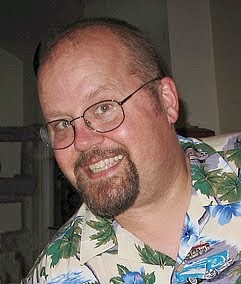An uneven and overlong
but entertaining experiment
"The
Irishman" was one of the most eagerly anticipated Hollywood films of 2019. Adapted from the novel "I Heard You
Paint Houses" by Charles Brandt, which follows the career of mafia muscle
man Frank Sheeran, "The Irishman" seemed poised to be another stellar entry for director Martin Scorcese, who would be returning to the gangster genre in
which he had made such cinematic benchmarks as "Goodfellas" and
"Casino." The film also heralded Joe Pesci's return to the screen after ostensibly retiring twenty years
ago.
To many this came as no surprise as Scorcese's decision to cast Pesci in "Raging Bull" was what made the young actor's career. Even more enticing was that "The Irishman" would reunite Pesci with Robert De Niro, and that these two Scorcese alumni would be joined by Al Pacino, completing a trifecta ofHollywood mob icons. Could this long-lauded assemblage make a three and a half hour biography that's also a compelling character story?
To many this came as no surprise as Scorcese's decision to cast Pesci in "Raging Bull" was what made the young actor's career. Even more enticing was that "The Irishman" would reunite Pesci with Robert De Niro, and that these two Scorcese alumni would be joined by Al Pacino, completing a trifecta of
Most of the time, yeah, sure! Scorcese knows these underworld denizens quite well and is adept at navigating their turbulent world. Marty is also expert at leading the
audience down dark hallways fraught with fear, suspicion and betrayal in a way that is often as engrossing as it is repulsive. "The
Irishman" is a sprawling and complicated saga, but it's potential for
greatness is hampered by several things. Let's start with the overcrowded but outstanding roster of supporting actors.
Everybody is in this movie! I would be willing to guarantee that half the fun for fans of this genre will be identifying actors who have played similar roles in other films and TV series. Of course, who wouldn't want to be in a Martin Scorcese film? Nobody, that's who!
Despite the makeup and the years that pass, you never forget a favorite face or voice, and it's a delight to see and hear so many familiar ones. However, some of these actors don't have critical roles despite being in significant portions of the film.
 |
| Stephen Graham from "Boardwalk Empire" |
 |
| Bobby Cannavalle, Kathrine Narducci (Charmaine Bucco in "The Sopranos"), and Ray Romano |
Everybody is in this movie! I would be willing to guarantee that half the fun for fans of this genre will be identifying actors who have played similar roles in other films and TV series. Of course, who wouldn't want to be in a Martin Scorcese film? Nobody, that's who!
 |
| Domenic Lombardozzi ("Herc" in "The Wire") in his "Fat" Tony Salerno makeup. |
Despite the makeup and the years that pass, you never forget a favorite face or voice, and it's a delight to see and hear so many familiar ones. However, some of these actors don't have critical roles despite being in significant portions of the film.
In particular, Anna Paquin doesn't have much purpose as Frank Sheeran's wise-beyond-her-years daughter. You could cut her out entirely and reduce the film's running time by 30 minutes without affecting the narrative at all. There is no resolution to her long-held judgement regarding her father and her very conflicted feelings about the work he does, so her continued presence is not critical.
The eyes truly are the window to the soul, and for me, there were far too many shots where De Niro's eyes appeared mismatched or their color artificially enhanced. I felt that more work needed to be done to finish these shots as the appearance of the character's face and succeeding expressions often came close to cartoonish, so my immersion was broken and the drama undermined.
The obtuse way in which a lifelong friend can be instantly condemned to death with a few short, vague sentences and a slight gesture of the hand is a hallmark of mob movies, and few directors create that singular sense of dread hiding within the mundane better than Martin Scorcese.
However,
there is one last, overarching issue, and that is despite Robert De Niro being one
of the great actors of our time, the character that he plays was very likely a
certifiable sociopath. Frank Sheeran
killed so many people without remorse and without much thought at all. He just did it. As such, Frank is not a very compelling or
interesting main character because of his near absence of introspection and lack
of psychological turmoil over his ice-cold actions.
Murder never bothers him, and so it never comes across as a big deal. As the credits begin to roll, you aren't left feeling sad or angry, and perhaps that's the point of the story, but when you come to the end of such a turgid tale of deceit, treachery and assassination, I don't think you're out of line to want more of a summation than: "It is what it is."
Murder never bothers him, and so it never comes across as a big deal. As the credits begin to roll, you aren't left feeling sad or angry, and perhaps that's the point of the story, but when you come to the end of such a turgid tale of deceit, treachery and assassination, I don't think you're out of line to want more of a summation than: "It is what it is."











No comments:
Post a Comment